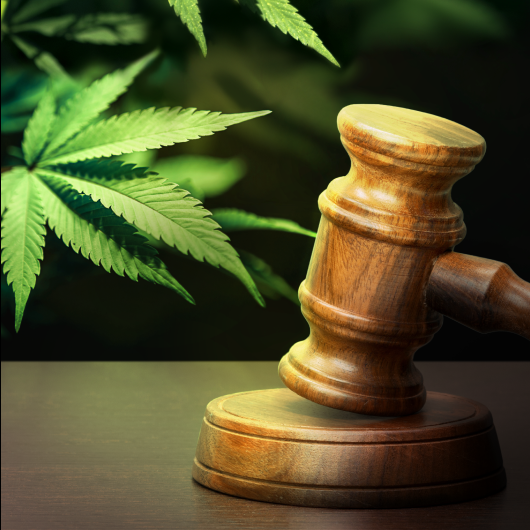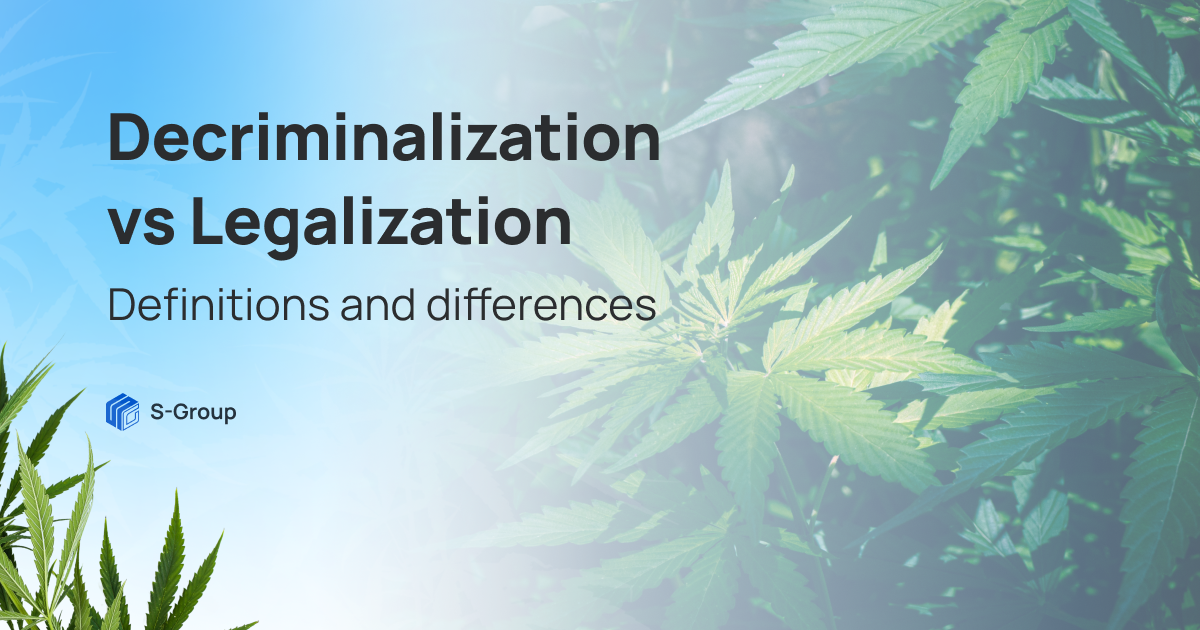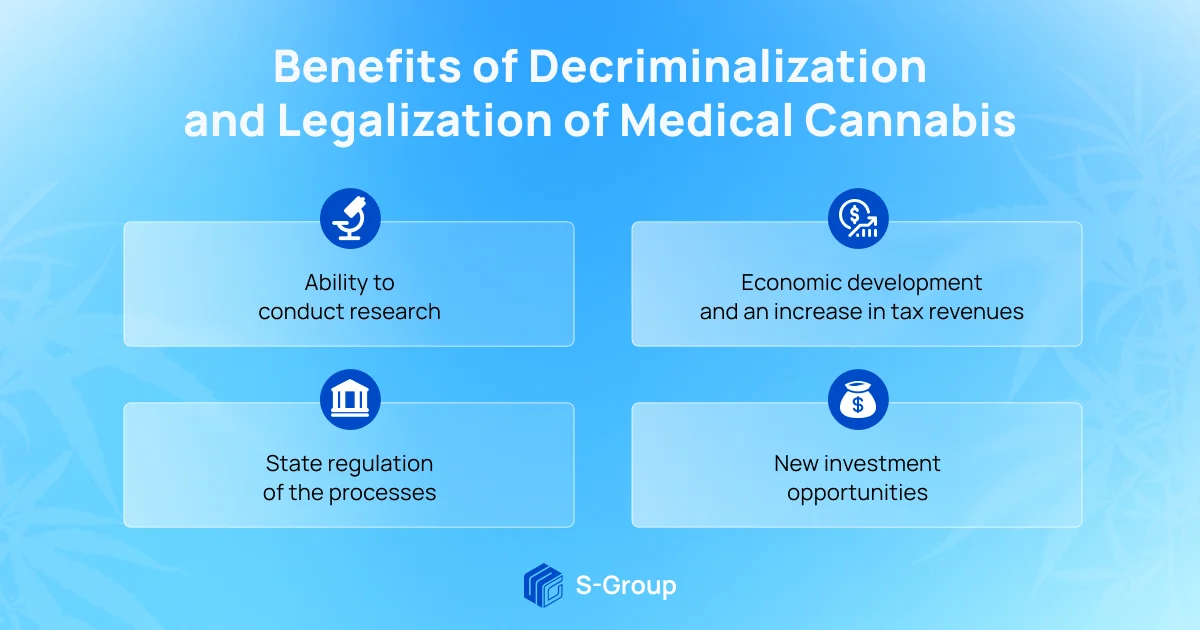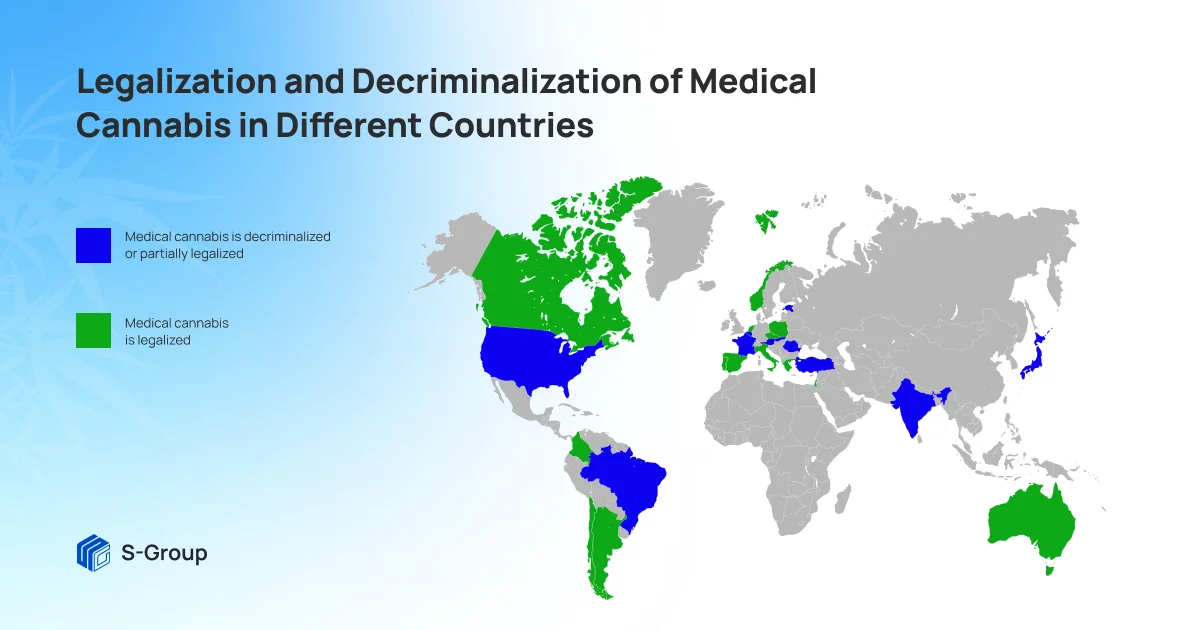Decriminalization and Legalization of Medical Cannabis: differences and perspectives

In many countries, medical cannabis is viewed as a promising industry for the domestic economy. Decriminalization and legalization of cannabis are important points that contribute to expanding the industry and attracting investment.
What does decriminalization and legalization of medical cannabis mean? How are they different? What challenges do decriminalization and legalization solve for the medical cannabis industry? Read the answers to these questions in this article.
Definition of decriminalization and legalization

Decriminalization is the change in a country's law to decriminalize a certain activity. It refers to activities that were previously criminalized. For example, the use and cultivation of cannabis.
Decriminalization does not mean that the prohibition of the activity will be removed completely. It only replaces criminal punishment with civil or administrative punishment. In many countries, decriminalization of medical cannabis has been an intermediate point on the road to legalization. It allows for a gradual adaptation of the state apparatus to the innovations associated with the further legalization of cannabis.
Legalization is a change in the law that removes all legal prohibitions on a particular activity or drug. As a result of this process, the object of legalization becomes completely legal and regulated by the state.
Legalization means that any citizen can legally engage in a given activity without fear of legal consequences. Its goals are:
- creating legal markets with certified products and services;
- making profit by the state through taxes;
- development of economic indicators by attracting investment;
- reduction of criminal activity associated with previously prohibited activities.
The meaning of decriminalization and legalization for the medical cannabis industry
Various countries' bans on medical cannabis activities create challenges for the industry. In addition to the legal implications for producers and consumers, there are tax and banking restrictions. Therefore, decriminalization and legalization of medical cannabis is important for the industry and society as a whole.
The decriminalization and further legalization of cannabis has a number of benefits.

1. Ability to conduct research. The study of medical cannabis is necessary to better understand its effects on the human body and physical and mental illnesses. Research allows us to grow new strains, improve products, and develop new treatments using medical cannabis.
2. State regulation of the processes. This factor will allow the introduction of product quality standards, control the production and distribution of medical cannabis. Producers get legal activities and patients get a certified product.
3. Economic development and an increase in tax revenues. Removing legal restrictions improves national economies by increasing tax revenues. According to 2019 data from Arcview Market Research and BDS Analytics, cannabis sales in the U.S. totaled $12.2 billion. This amount is projected to increase to $31.1 billion by 2024. A report from New Frontier Analysis indicates that by 2025, marijuana can generate an additional $105.6 billion in tax revenue.
4. New investment opportunities. Legalizing marijuana in countries where it is not legal would help investors protect investment portfolios. If marijuana becomes legal on a national level, companies will be free to list on the stock exchanges. This way, they will increase liquidity and open up access to profits for many investors.
Decriminalization and legalization in different countries
Most countries in Asia and Africa prohibit the production and use of medical cannabis. Countries in Europe and North and South America are more liberal on this issue.

In the United States, medical cannabis is still illegal at the federal level, but 37 states have already passed legalization laws. In Canada, medical cannabis is completely legal.
In Australia, medical cannabis is legal at the federal level, but each state has different additional rules and conditions.
In a number of countries, such as Slovakia, Singapore, Austria, Belgium, and Japan, only certain drugs and components are legal, such as CBD, Sativex, and Dronabinol. In India, medical cannabis products with a tetrahydrocannabinol (THC) content of no more than 0.3% are legalized, and in Romania no more than 0.2%.
Some countries have partially legalized cannabis and imposed special conditions for use. In Germany, for example, medical cannabis is allowed only if the patient is not helped by alternative therapies.
Summary
Decriminalization of medical cannabis is an important intermediate step, but it is legalization that allows the industry to progress in research, technological and economic directions. Legalization has benefits not only for producers, distributors, and consumers, but also for the states where medical cannabis is legalized.
Society is gradually changing its attitude towards the industry for the better, which contributes to the decriminalization and legalization of medical cannabis around the world.
Share
Interesting
Would you like to receive a digest of articles?
One email with the best articles of the week.
Sign up so you don't miss anything.